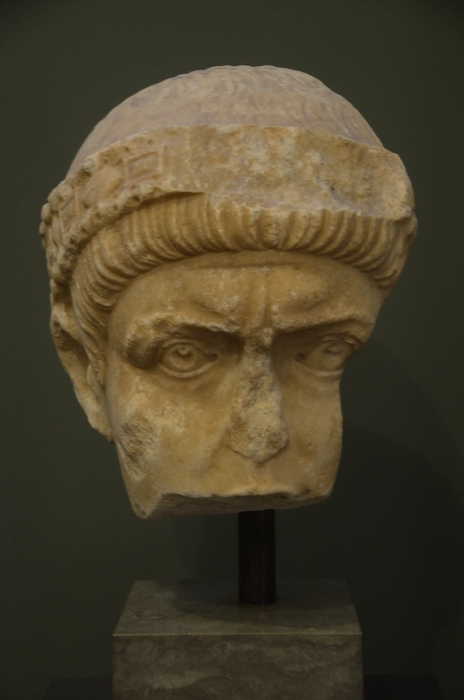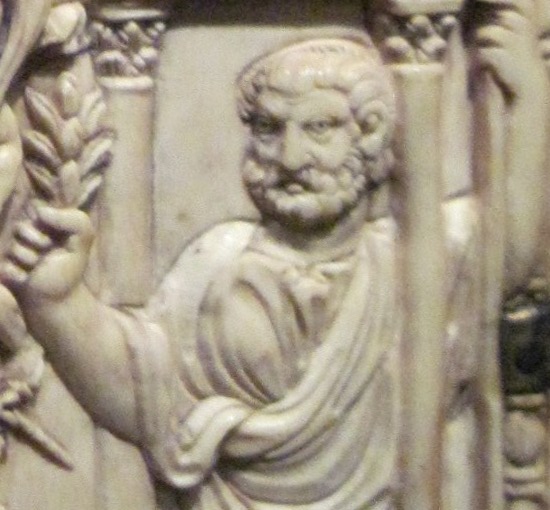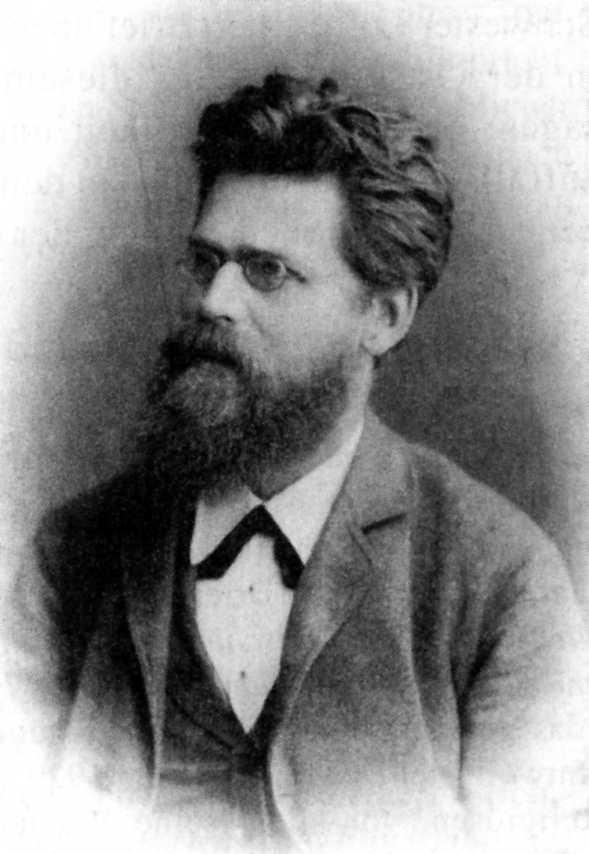|
Volusius Venustus
Volusius Venustus (''floruit'' 4th century) was an aristocrat of the Roman Empire. Biography Volusius Venustus set up a monument in the forum of Canosa in honour of Constantine I and his two sons (the fact that only two sons are honoured means that the monument was set up between 317 and 333, less the period between 324 and 326). This monument is a clue that he was from this city in southern Italia; it also marks his office, the one of ''corrector Apuliae et Calabriae'' (governor of the region corresponding to the present-day Apulia). A Venustus is attested in the year 362, as a member of a senatorial delegation to Antioch to the emperor Julian, who on this occasion nominated this Venustus as ''vicarius Hispaniarum'' (362-363). In 370, together with Vettius Agorius Praetextatus and Minervius, he comprised a senatorial legation to the Emperor Valentinian I, asking him not to torture those senators involved in trials.Ammianus Marcellinus, xxviii.1.24-25. According to a long-stan ... [...More Info...] [...Related Items...] OR: [Wikipedia] [Google] [Baidu] |
Roman Empire
The Roman Empire ( la, Imperium Romanum ; grc-gre, Βασιλεία τῶν Ῥωμαίων, Basileía tôn Rhōmaíōn) was the post-Republican period of ancient Rome. As a polity, it included large territorial holdings around the Mediterranean Sea in Europe, North Africa, and Western Asia, and was ruled by emperors. From the accession of Caesar Augustus as the first Roman emperor to the military anarchy of the 3rd century, it was a Principate with Italia as the metropole of its provinces and the city of Rome as its sole capital. The Empire was later ruled by multiple emperors who shared control over the Western Roman Empire and the Eastern Roman Empire. The city of Rome remained the nominal capital of both parts until AD 476 when the imperial insignia were sent to Constantinople following the capture of the Western capital of Ravenna by the Germanic barbarians. The adoption of Christianity as the state church of the Roman Empire in AD 380 and the fall of the Western ... [...More Info...] [...Related Items...] OR: [Wikipedia] [Google] [Baidu] |
Valentinian I
Valentinian I ( la, Valentinianus; 32117 November 375), sometimes called Valentinian the Great, was Roman emperor from 364 to 375. Upon becoming emperor, he made his brother Valens his co-emperor, giving him rule of the eastern provinces. Valentinian retained the west. During his reign, Valentinian fought successfully against the Alamanni, Quadi, and Sarmatians. Most notable was his victory over the Alamanni in 367 at the Battle of Solicinium. His general Count Theodosius defeated a revolt in Africa and the Great Conspiracy, a coordinated assault on Roman Britain by Picts, Scots, and Saxons. Valentinian was also the last emperor to conduct campaigns across both the Rhine and Danube rivers. Valentinian rebuilt and improved the fortifications along the frontiers, even building fortresses in enemy territory. He founded the Valentinianic dynasty, with his sons Gratian and Valentinian II succeeding him in the western half of the empire. Early life Valentinian was born in 321 ... [...More Info...] [...Related Items...] OR: [Wikipedia] [Google] [Baidu] |
4th-century Romans
The 4th century (per the Julian calendar and Anno Domini/Common era) was the time period which lasted from 301 ( CCCI) through 400 ( CD). In the West, the early part of the century was shaped by Constantine the Great, who became the first Roman emperor to adopt Christianity. Gaining sole reign of the empire, he is also noted for re-establishing a single imperial capital, choosing the site of ancient Byzantium in 330 (over the current capitals, which had effectively been changed by Diocletian's reforms to Milan in the West, and Nicomedeia in the East) to build the city soon called Nova Roma (New Rome); it was later renamed Constantinople in his honor. The last emperor to control both the eastern and western halves of the empire was Theodosius I. As the century progressed after his death, it became increasingly apparent that the empire had changed in many ways since the time of Augustus. The two emperor system originally established by Diocletian in the previous century fell in ... [...More Info...] [...Related Items...] OR: [Wikipedia] [Google] [Baidu] |
Lucius Ragonius Venustus (pontifex Major)
Lucius Ragonius Venustus (fl. 3rd century) was an aristocrat of the Roman Empire. He was appointed ''consul ordinarius'' in 240. X. Loriot describes Ragonius Venustus as an example of the "new generation of '' clarissimi''" that emerged under the reign of Alexander Severus. As the son and grandson of consuls, he attained the consulate without necessarily having served as military tribune, legate of a legion, or provincial governor, unlike his colleague Gaius Octavius Appius Suetrius Sabinus.X. Loriot"Les consuls ordinaires de l'année 240 de notre ère" ''Zeitschrift für Papyrologie und Epigraphik'', 12 (1973), p. 258 Loriot has traced the origins of his family. The ''gens Ragonia'' had their origins in Opitergium in Venetia et Histria. Ragonius Venustus' first ancestor to gain fame was L. Ragonius L. f. Urinatius Larcius Quintianus, who was appointed suffect consul under Commodus not long after AD 180. Larcius Quintianus' son was Lucius Ragonius Urinatius Tuscenius Quintianus, su ... [...More Info...] [...Related Items...] OR: [Wikipedia] [Google] [Baidu] |
Consul
Consul (abbrev. ''cos.''; Latin plural ''consules'') was the title of one of the two chief magistrates of the Roman Republic, and subsequently also an important title under the Roman Empire. The title was used in other European city-states through antiquity and the Middle Ages, in particular in the Republics of Genoa and Pisa, then revived in modern states, notably in the First French Republic. The related adjective is consular, from the Latin ''consularis''. This usage contrasts with modern terminology, where a consul is a type of diplomat. Roman consul A consul held the highest elected political office of the Roman Republic (509 to 27 BC), and ancient Romans considered the consulship the highest level of the ''cursus honorum'' (an ascending sequence of public offices to which politicians aspired). Consuls were elected to office and held power for one year. There were always two consuls in power at any time. Other uses in antiquity Private sphere It was not uncommon for an ... [...More Info...] [...Related Items...] OR: [Wikipedia] [Google] [Baidu] |
Lucius Ragonius Venustus
Lucius Ragonius Venustus (fl. 3rd century) was an aristocrat of the Roman Empire. He was appointed '' consul ordinarius'' in 240. X. Loriot describes Ragonius Venustus as an example of the "new generation of '' clarissimi''" that emerged under the reign of Alexander Severus. As the son and grandson of consuls, he attained the consulate without necessarily having served as military tribune, legate of a legion, or provincial governor, unlike his colleague Gaius Octavius Appius Suetrius Sabinus.X. Loriot"Les consuls ordinaires de l'année 240 de notre ère" ''Zeitschrift für Papyrologie und Epigraphik'', 12 (1973), p. 258 Loriot has traced the origins of his family. The ''gens Ragonia'' had their origins in Opitergium in Venetia et Histria. Ragonius Venustus' first ancestor to gain fame was L. Ragonius L. f. Urinatius Larcius Quintianus, who was appointed suffect consul under Commodus not long after AD 180. Larcius Quintianus' son was Lucius Ragonius Urinatius Tuscenius Quintianus, ... [...More Info...] [...Related Items...] OR: [Wikipedia] [Google] [Baidu] |
Lucius Avianus Symmachus
Lucius ( el, Λούκιος ''Loukios''; ett, Luvcie) is a male given name derived from ''Lucius'' (abbreviated ''L.''), one of the small group of common Latin forenames (''praenomina'') found in the culture of ancient Rome. Lucius derives from Latin word ''Lux'' (gen. ''lucis''), meaning "light" (< ''*leuk-'' "brightness", Latin verb ''lucere'' "to shine"), and is a of the name . Another etymology proposed is a derivation from ''Lauchum'' (or ''Lauchme'') meaning " |
Quintus Aurelius Symmachus
Quintus Aurelius Symmachus signo Eusebius (, ; c. 345 – 402) was a Roman statesman, orator, and man of letters. He held the offices of governor of proconsular Africa in 373, urban prefect of Rome in 384 and 385, and consul in 391. Symmachus sought to preserve the traditional religions of Rome at a time when the aristocracy was converting to Christianity, and led an unsuccessful delegation of protest against Emperor Gratian's order to remove the Altar of Victory from the curia, the principal meeting place of the Roman Senate in the Forum Romanum. Two years later he made a famous appeal to Gratian's successor, Valentinian II, in a dispatch that was rebutted by Ambrose, the bishop of Milan. Symmachus's career was temporarily derailed when he supported the short-lived usurper Magnus Maximus, but he was rehabilitated and three years later appointed consul. After the death of Theodosius I, he became an ally of Stilicho, the guardian of emperor Honorius. In collaboration with Sti ... [...More Info...] [...Related Items...] OR: [Wikipedia] [Google] [Baidu] |
Nicomachus Flavianus (son)
Nicomachus Flavianus ( 382–432), sometimes referred to as Flavianus the Younger, was a grammarian and a politician of the Roman Empire. He was the son of Virius Nicomachus Flavianus. He held several offices under emperors Valentinian II (371–392), Theodosius I (379–395), Honorius (393–423), and Valentinian III (425–455); together with his father he supported the usurper Eugenius until his defeat and death (392–394). Flavianus also edited a corrected version of Livy's work. Biography Flavianus belonged to the ''Nicomachi'', an influential family of senatorial rank. His father was the pagan politician and historian Virius Nicomachus Flavianus, CIL, VI, 1783 and he had a brother. He married a daughter (who some sources say was called Galla and other sources say is unnamed) of Quintus Aurelius Symmachus, from whom he received over 80 letters, and whose family had a long-time friendship and alliance with the ''Nicomachi''. It may have been in occasion of Flavianus' ... [...More Info...] [...Related Items...] OR: [Wikipedia] [Google] [Baidu] |
Virius Nicomachus Flavianus
Virius Nicomachus Flavianus (334–394 AD) was a grammarian, a historian and a politician of the Roman Empire. A pagan and close friend of Quintus Aurelius Symmachus, he was Praetorian prefect of Italy in 390–392. Under the usurper Eugenius (392–394), Flavianus was again praetorian prefect (393–394) and consul (394, recognized only within Eugenius' territory). After the death of Eugenius in the battle of the Frigidus, Flavianus committed suicide. Biography Nicomachus Flavianus was born in 334, and belonged to the ''Nicomachi'', an influential family of senatorial rank. His father was Volusius Venustus, and from his wife, a pagan herself, he had a son also called Nicomachus Flavianus and maybe another son called Venustus; he was also grandfather of Appius Nicomachus Dexter and of Galla. His career can be reconstructed from two inscriptions: one ( CIL, VI, 1782) put up by his granddaughter's husband Quintus Fabius Memmius Symmachus and probably inscribed in 394, the o ... [...More Info...] [...Related Items...] OR: [Wikipedia] [Google] [Baidu] |
Otto Seeck
Otto Karl Seeck (2 February 1850 – 29 June 1921) was a German classical historian who is perhaps best known for his work on the decline of the ancient world. He was born in Riga. He first began studying chemistry at the University of Dorpat but transferred to the University of Berlin to study classical history under Theodor Mommsen. Seeck earned his doctorate from the University of Berlin in 1872 after writing his thesis on the ''Notitia Dignitatum'', a document enumerating the roles and responsibilities of administrative officials of the later Roman empire c. 400 AD. He habilitated under Mommsen in Berlin in 1877 and, with the help of Mommsen, secured a post at the University of Greifswald in 1881, where he taught Roman History and Archaeology. There he met Karl Julius Beloch. In 1907 he went to the University of Münster where he continued teaching and writing. Seeck wrote many influential works on late antiquity and social Darwinism. He was widely published in such academi ... [...More Info...] [...Related Items...] OR: [Wikipedia] [Google] [Baidu] |






